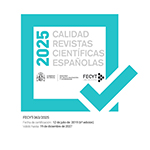Negotiating change for gender equality: identifying leverages, overcoming barriers
Abstract
Introduction. Institutional change through gender equality plans is today the dominant approach to promoting gender equality in higher education and research. Building on our experiences as “technical support partners” in several EU-funded projects, we reflect on how change is negotiated in a variety of contexts. Objectives. Theoretically, using Feminist Institutionalism and the Science and Technology Studies concept of the trading zone, our objective is to analyse institutional negotiations among various, differently positioned actors with diverse backgrounds, value systems and negotiating power. From a practice-oriented perspective, our aim is to demonstrate typical challenges, suggest pathways towards solutions, and identify specific negotiation skills which underscore the capacity-building needs of change agents. Methodology. For our analysis, we have selected eight information-rich case studies through purposive theory-based sampling, illustrating the different transactions in the trading zones, based on our prior knowledge of the circumstances. The methods we draw on are primarily participant observation and textual analysis of project documents. Results. The selected theoretical combination allows us to identify leverages, ways to overcome barriers and the required skills and competences. Specifically, we underscore the use of participatory and co-creation techniques, strategic framing, spotting and using windows of opportunity, and wide mobilisation of stakeholders. We highlight key features of the change process, including its processual and incremental nature, the need for constant negotiation and the capacity-building needs of change agents. Contribution. With this analysis, we contribute, firstly, to the understanding of organisational change by identifying concrete barriers and opportunities as well as considering the ways in which a shared representation of gender equality is developed. The second, theoretical contribution lies in combining Feminist Institutionalism and the concept of the trading zone, which allows us to bring to productive dialogue issues of power, processuality and the need to address both material and discursive enactments of change processes.
Downloads
Article download
License
In order to support the global exchange of knowledge, the journal Investigaciones Feministas is allowing unrestricted access to its content as from its publication in this electronic edition, and as such it is an open-access journal. The originals published in this journal are the property of the Complutense University of Madrid and any reproduction thereof in full or in part must cite the source. All content is distributed under a Creative Commons Attribution 4.0 use and distribution licence (CC BY 4.0). This circumstance must be expressly stated in these terms where necessary. You can view the summary and the complete legal text of the licence.











